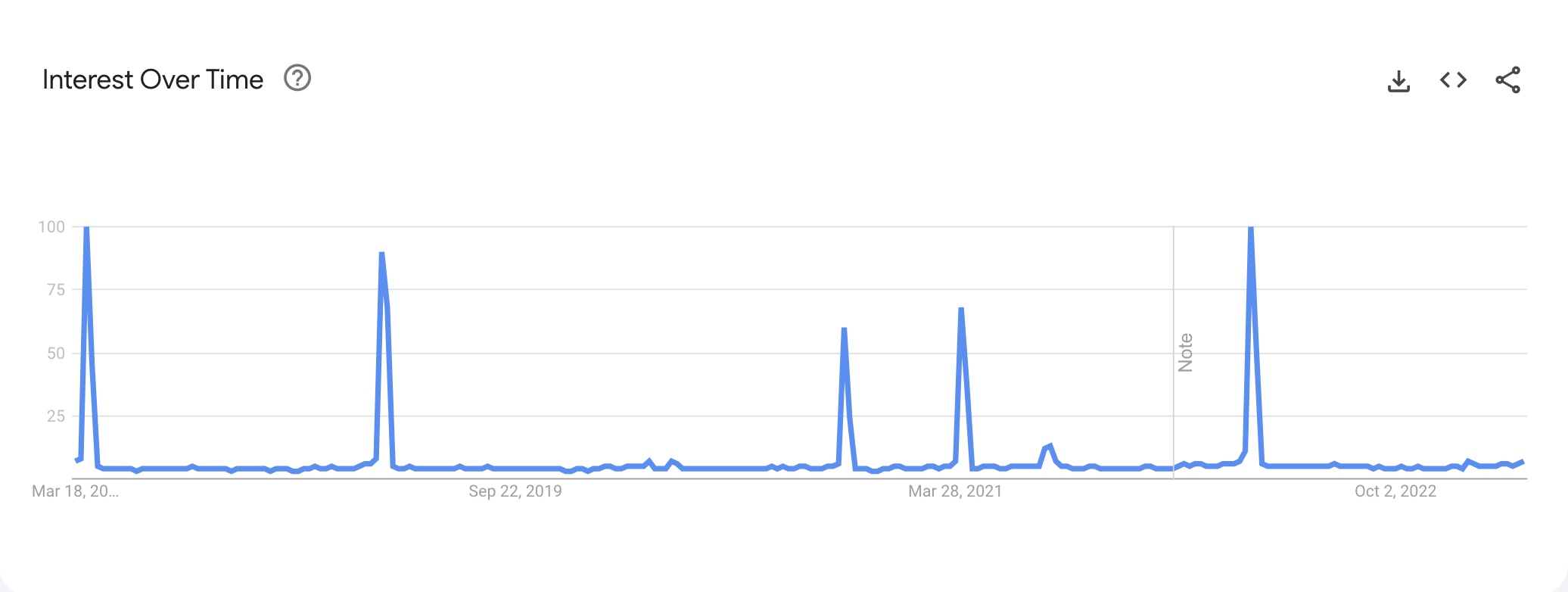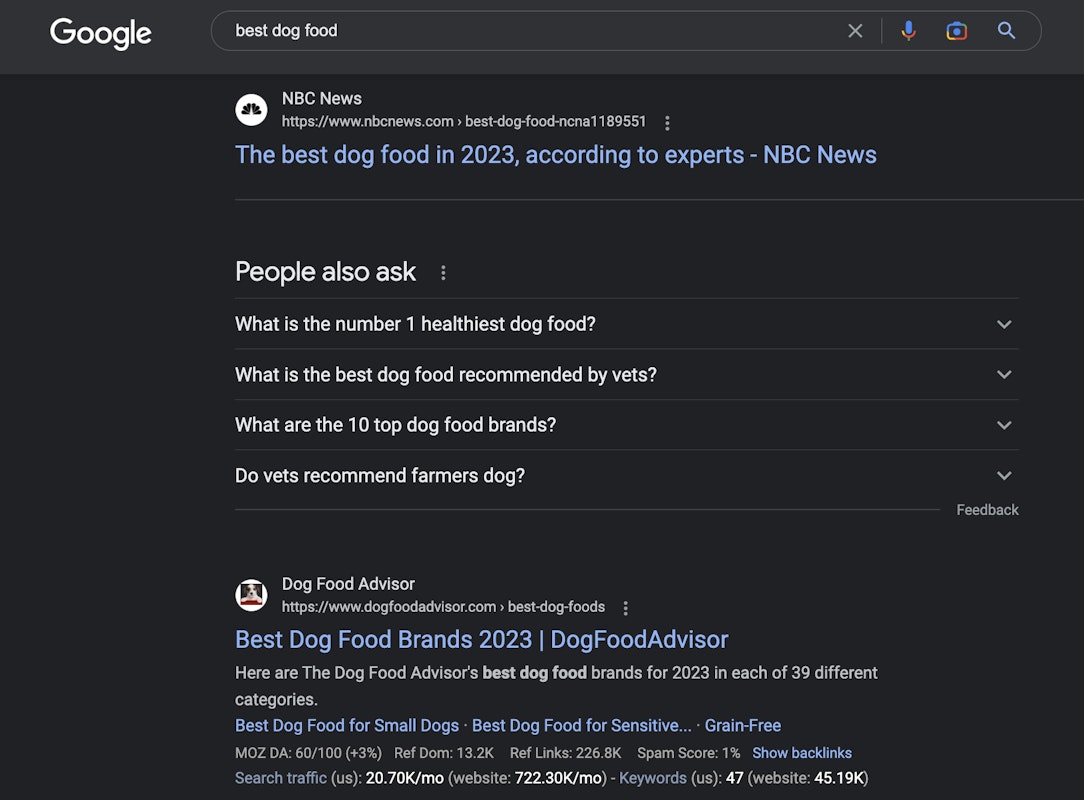Table of Contents
Keyword research is an essential aspect of SEO, but relying solely on automated tools can lead to a narrow and incomplete understanding of your target audience's search intent. While tools can provide valuable insights and save time, they are not infallible, and their limitations can lead to inaccurate and misleading data.
The challenge for SEO professionals is to strike a balance between utilizing the benefits of automation while also leveraging their own knowledge and expertise to achieve a comprehensive understanding of their target audience's search intent.
In this article, we'll explore the limitations of automated tools for keyword research and how to prioritize expertise over tools to achieve a more comprehensive and effective SEO strategy.
What is keyword research and why is it important?
Keyword research is a critical aspect of SEO strategy, it entails identifying the relevant keywords and phrases that your target audience is searching for in search engines. By using these keywords and phrases to optimize your website's content, you can improve its visibility in search engine results pages (SERPs) and drive more targeted and engaged traffic to your website.
There are a number of keyword research tools available, such as Google Keyword Planner, SEMrush, and Ahrefs which can assist in this process. These tools provide valuable insights on search volume, competition, and related keywords, as well as help identify gaps in your current content strategy.
But using only these tools is not enough, it's important to combine tool insights with your own understanding of your target audience and their search intent to create an effective SEO strategy.
The Flaws of Keyword Research Tools
Limited Keyword Data
One of the biggest drawbacks of keyword research tools is that they can provide inaccurate or misleading data. These tools often calculate keyword data over a 12-month period, which can be misleading if your niche experiences a seasonal spike in certain keywords. For instance, let's consider The Masters, one of the most prominent PGA golf tournaments held every year during the first week of April at Augusta National.
According to ahrefs, the keyword phrase "the masters" has an average monthly search volume of 244,000 monthly searches, which is quite high.

However, if you take this high average monthly search figure at face value, you might believe that ranking highly for this keyword would bring in a massive amount of traffic each month, which is unlikely to happen.
To understand this better, let's take a look at the seasonality of the key phrase "the masters" over the past four years, as depicted by Google Trends.


By analyzing Google Trends data for our target keywords, we can get valuable insights that would otherwise not be discovered when relying solely on keyword tool averages. Using this information, we can plan to create new content centered around The Masters topic and refresh existing website content a few weeks ahead of the seasonal spike to improve the overall appearance of "freshness" in the eyes of search engines.
Navigating Misleading Keyword Volumes
Another flaw of keyword research tools is that keyword volumes can be misleading. Many tools round off keyword volumes for convenience in dealing with data. This can obscure differences of even 10,000 searches/month between keywords. This can be especially problematic for businesses targeting lesser-searched long-tail keywords, where rounding up to the nearest 10 can make a significant difference.
Uncovering Low-Volume Keywords
Another flaw of keyword research tools is that they often don't capture low-volume keywords well. This is problematic for businesses targeting niche markets or long-tail keywords, which may have low search volume but are still important for driving traffic and conversions. These low-volume keywords can often be overlooked by keyword research tools, leading businesses to miss out on potential opportunities.
Decoding Search Intent
Search engines, such as Google, prioritize delivering appropriate search results to users. Therefore, comprehending search intent can significantly influence your search engine ranking, something keyword tools either don't do or don't do a very good job of. For your reference, there are 4 categories of search intent:
- Navigational
- Informational
- Commercial
- Transactional
Let's use the example of "best dog food". Without manual inspection of this keyword, I would assume the results would be categorized as transactional, with many product display pages from top brands showcasing their top-selling dog food.
But instead, when we take a closer look at the search engine results page, the intent of the keyword is in fact more informational than anything - searchers are looking to gather information about which dog food brands the experts are recommending for longevity before making a purchase.

The Relevance of Phrases
One major issue with relying solely on keyword research tools is that they may suggest keywords that aren't relevant to your target audience's search intent. For instance, if you're running a vegan food blog, a keyword tool might suggest "beef recipes" as a potential keyword to target, simply because it has a high search volume. However, this keyword is clearly not relevant to your audience, who are likely searching for vegan recipes. Focusing on irrelevant keywords can lead to a high bounce rate, poor engagement, and ultimately a lower search ranking.
How Uproer approaches keyword research
Incorporating keyword research into your overall strategy development is crucial for creating effective content that resonates with your target audience. However, many marketers make the mistake of relying solely on keyword tools to guide their approach. This can lead to generic content that fails to address the specific needs and pain points of your audience.
Instead, we employ a more hands-on approach. By tapping into the channels where our target audiences are already talking, you can gain valuable insights into the topics, questions, and challenges that are top of mind for them. This includes channels such as Reddit, Twitter, Slack channels, public forums, social media, YouTube comments, People Also Ask, blog comments, and competitive analysis.
By analyzing the recurring themes and language used in these conversations, you can identify the specific keywords and phrases that are most relevant to your audience. This approach not only ensures that your content is tailored to their needs but also helps you to create a more authentic and engaging brand voice.
In short, while keyword tools have their place in the KWR process, they should not be relied upon exclusively. By starting with a more hands-on approach and listening to the conversations already happening around your brand, you can create content that truly resonates with your target audience.
Balancing Automation and Expertise in SEO
While keyword research tools can be valuable resources, they're not without their flaws. It's important to use wisdom before tools in keyword research and to consider alternative methods for identifying relevant keywords and phrases.
Manual research, competitor analysis, and user research are all effective methods for identifying relevant keywords and phrases. Manual research involves brainstorming and researching relevant keywords, competitor analysis involves researching the keywords and phrases used by competitors, and user research involves identifying the keywords and phrases used by the target audience.
By using multiple methods for keyword research, businesses can gain a more accurate and comprehensive understanding of the keywords and phrases that are most relevant to their target audience and industry. These alternative methods, such as manual research, competitor analysis, and user research, can provide deeper insights into the intent behind searches and the specific phrases that are most likely to drive traffic and conversions.
If you're struggling with keyword research or need help developing a comprehensive SEO strategy, Uproer can help. Our team of experts has extensive experience in all aspects of search marketing and can provide customized solutions tailored to your unique needs. Contact us today to learn how we can help take your online presence to the next level.

